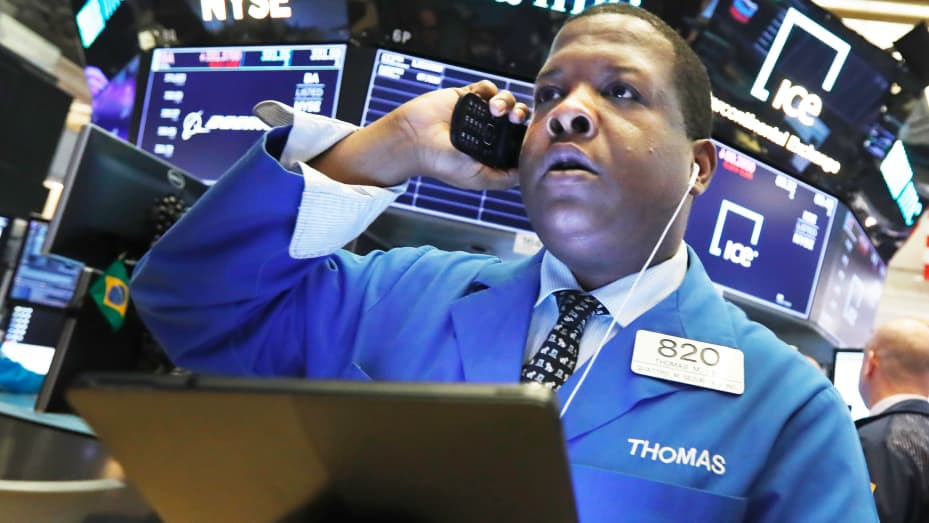Crypto Market Soars: A Deep Dive into the Recent Surge and What it Means for Investors
Meta Description: Bitcoin price surge, crypto market explosion, institutional investment, regulatory developments, and market analysis of the recent cryptocurrency boom.
The cryptocurrency market erupted like a volcano last week, sending shockwaves through the financial world. Bitcoin, the undisputed king of crypto, blasted past $71,000, a feat not seen since June. Dogecoin, that meme-fueled marvel, rocketed over 18%! Ethereum, the smart contract superstar, also joined the party, climbing nearly 5%. This wasn't a gentle climb; this was a ballistic ascent, leaving a trail of liquidated positions in its wake. Over 73,000 traders felt the sting, losing a staggering $242 million in a single day – over $73 million vanished in just one hour! Holy moly! This wasn't just another day in the crypto wild west; this was a full-blown stampede. But what ignited this sudden, explosive growth? Was it a rogue algorithm? An alien invasion? Nope. The answer, my friends, is far more fascinating, a complex interplay of political posturing, institutional backing, and regulatory shifts. This isn't just a story about numbers; it's a human drama unfolding in the digital realm, a testament to the power of speculation, the allure of technological innovation, and the ever-present risk inherent in this volatile market. Buckle up, because we're going on a journey to unravel the mystery behind this crypto rollercoaster. We’ll look at the key factors driving this surge, examine the potential implications for the future, and answer some burning questions you might have. Get ready to dive deep into the heart of this exhilarating, and sometimes terrifying, cryptocurrency revolution!
The Trump Effect and Crypto's Unexpected Rally
The crypto market's recent surge is a fascinating case study in how seemingly unrelated events can have a profound impact on asset prices. One of the key drivers behind this dramatic upswing was the shifting sands of the US Presidential election. With Donald Trump gaining ground in the polls against Vice President Kamala Harris, the crypto market reacted with unbridled enthusiasm. Why? Trump's openly pro-crypto stance, his promises to make the US a global crypto hub, and his perceived business-friendly policies have resonated strongly with investors. Conversely, Harris's more cautious approach to crypto regulation, while potentially offering stability, hasn't generated the same level of excitement among those hoping for rapid growth. This isn't to say that Trump's victory is a guaranteed boon for crypto; the regulatory landscape remains uncertain regardless of who wins. However, the market clearly interprets a Trump presidency as a more optimistic scenario for the near-term future of crypto, leading to a speculative buying spree. This "Trump trade," as some analysts are calling it, is a powerful reminder of how political dynamics can significantly influence even the most decentralized of markets.
The recent polls showing a tightening race, with Trump even surpassing Harris in some surveys, fueled speculation and poured gasoline on the already burning crypto bonfire. Remarkably, betting markets, like Polymarket, were even more bullish on a Trump victory, reflecting a potentially stronger market sentiment than reflected in traditional polling data. This divergence highlights the unique dynamics at play in the crypto space, where sentiment and speculation can quickly translate into substantial price movements, leaving many traditional market analysts scratching their heads.
Institutional Adoption: Giants Enter the Crypto Arena
Beyond the political theater, the involvement of major institutional players has played a crucial role in boosting crypto prices. BlackRock, the world's largest asset manager (with AUM exceeding $11.48 trillion!), has made significant waves with its substantial Bitcoin purchases. Their recent acquisition of 34,085 BTC, worth roughly $2.4 billion, demonstrates a clear vote of confidence in the long-term potential of Bitcoin as an asset class. BlackRock's move is not an isolated incident; it’s part of a broader trend of institutional adoption. The growing acceptance of Bitcoin as a legitimate investment vehicle signals a shift in the perception of crypto assets from speculative instruments to potentially sound investments within diversified portfolios. This institutional influx of capital has significantly influenced market sentiment and helped drive up prices.
The potential investment by Microsoft, even though met with resistance from the board, adds another layer to this story. The fact that a tech titan like Microsoft is even considering investing in Bitcoin underscores the growing mainstream acceptance of cryptocurrencies. While the board’s resistance might signal a slightly more cautious approach, the mere fact that the proposal even reached the table speaks volumes about the evolving perception of Bitcoin.
Further solidifying the institutional narrative, the Hong Kong Stock Exchange (HKEX) announced the launch of a virtual asset index series. This development is expected to provide a reliable benchmark price for digital assets, bolstering Hong Kong's ambition to become a leading Asian hub for crypto trading and investment. This move highlights not only the growing acceptance of crypto but also the increasing regulatory clarity in certain jurisdictions. It's a far cry from the Wild West days of crypto, suggesting a gradual move towards greater stability and legitimacy.
Market Reaction: A Rollercoaster Ride
The market reacted to these events with a fervor rarely seen. Cryptocurrency-related stocks surged. In Hong Kong, companies like OSL Group and Euro Asia Cloud saw double-digit percentage increases. In mainland China, the so-called "computing power concept" stocks experienced a similar surge. This interconnectedness between the crypto market and traditional financial markets highlights the increasing influence of crypto on the broader economy. It is no longer a niche sector; it’s increasingly becoming integral to the global financial landscape.
The significant increase in market volatility, as evidenced by the massive liquidations, demonstrates the inherent risks associated with investing in cryptocurrencies. While the rapid price increases are alluring, the potential for equally swift declines is a constant reminder of the need for careful risk management.
The Future of Crypto: Navigating Uncertainty
Predicting the future of crypto is, to put it mildly, a fool's errand. The market is notoriously volatile, shaped by a confluence of factors ranging from regulatory changes to technological advancements and, as we've seen, even presidential elections. However, the current trends suggest a few key takeaways.
- Institutional Adoption is Key: The increasing involvement of institutional investors signifies a level of maturity and legitimacy.
- Regulation Will Play a Crucial Role: Clearer, more consistent regulations will be vital for long-term stability and growth.
- Technological Advancements Will Drive Innovation: Continuous innovation in blockchain technology will continue to shape the space.
Frequently Asked Questions (FAQ)
Q1: Is this crypto surge sustainable?
A1: It's impossible to say for sure. While the factors driving the recent surge are significant, the crypto market is inherently volatile and subject to sudden shifts. Sustainability depends on various factors, including regulatory developments, continued institutional investment, and overall market sentiment.
Q2: Should I invest in crypto now?
A2: Investing in crypto carries significant risk. Before investing, carefully assess your risk tolerance, conduct thorough research, and consider consulting a financial advisor. Never invest more than you can afford to lose.
Q3: What are the risks of investing in crypto?
A3: Crypto markets are highly volatile, susceptible to price swings, scams, and regulatory uncertainty. Security breaches and hacks are also a concern.
Q4: How can I protect myself from crypto scams?
A4: Be wary of unsolicited investment offers, do your due diligence on any project before investing, and use reputable exchanges and wallets.
Q5: What is the role of regulation in the crypto market?
A5: Regulation is crucial for establishing trust, protecting investors, and fostering responsible innovation. Clear and consistent regulations can help to reduce risks and attract institutional investment.
Q6: What does the future hold for cryptocurrencies?
A6: The future of crypto is uncertain but full of potential. Technological advancements and wider adoption could lead to significant growth, but risks remain.
Conclusion: A Market on the Move
The recent crypto market surge was a remarkable event, driven by a confluence of factors—political developments, institutional investment, and regulatory shifts. While the volatility inherent in the crypto market makes long-term predictions challenging, the increasing mainstream adoption and institutional interest underscore the growing maturity and importance of this sector. However, investors must remain vigilant, aware of the risks involved, and prepared for potential market downturns. The crypto journey is far from over; it's a dynamic, evolving space full of both immense opportunities and significant challenges. The ride might be bumpy, but the potential rewards – and the risks – are undeniably significant. So, fasten your seatbelts, and prepare for the next chapter in the exciting saga of cryptocurrencies.



